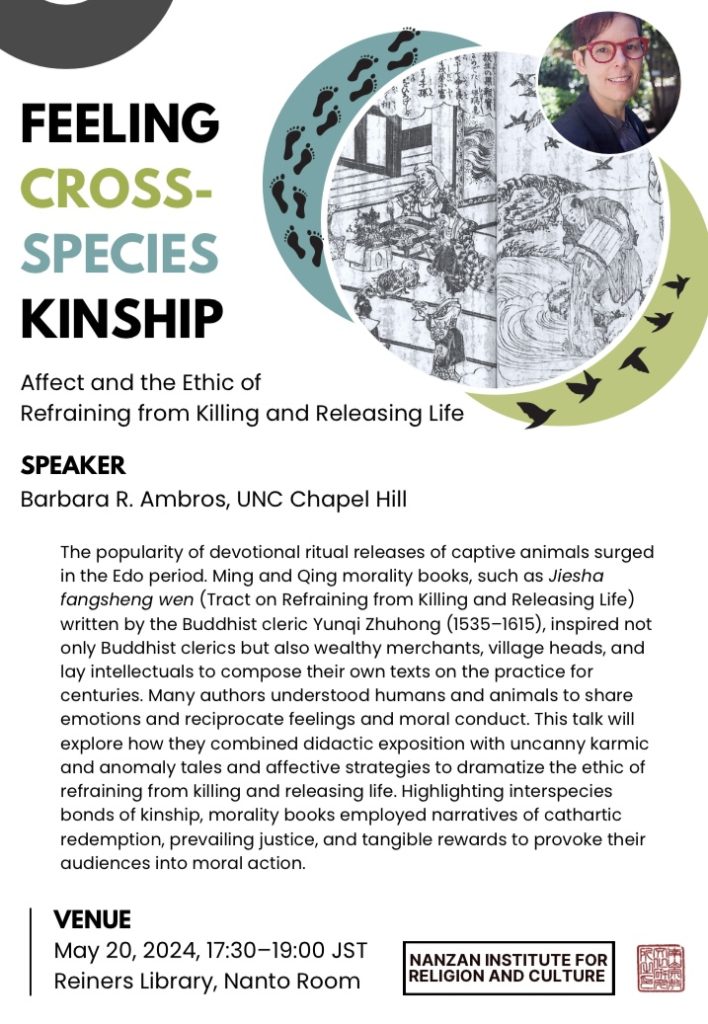On Monday, May 20, Religious Studies Professor Barbara Ambrose will give a talk entitled “Feeling Cross-species Kinship in Edo-Period Morality Books: Excessive Affect and the Ethic of Refraining from Killing and Releasing Life” from 5:30~7:00 pm in the Nanto Room of Reiners Library at Nanzan University in Nagoya, Japan.
The talk is free and open to the public. Below is a brief introduction to the topic:
Influenced by Ming and Qing morality books, particularly the works of the Buddhist cleric Yunqi Zhuhong (1535–1615), devotional ritual releases of captive animals on the verge of death surged in popularity in the Edo period. Zhuhong’s seminal Jiesha fangsheng wen (Tract on refraining from killing and releasing life) was published in Japan as a Sino-Japanese edition in 1661 and inspired the composition of about three dozen Japanese Buddhist texts over the next two-and-a-half centuries. Most Japanese tracts on refraining from killing and releasing life were authored by Buddhist clerics, but some texts were composed by wealthy merchants, village heads, and lay intellectuals.

